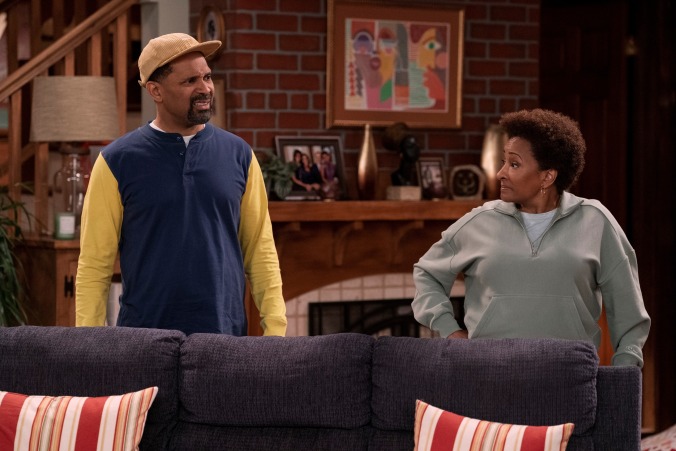The Upshaws season 3 review: The Netflix sitcom turns up the drama
There are moments in this working-class comedy when it’s just too hard to laugh

When it arrived on Netflix in 2021, The Upshaws stood out as a refreshing twist on the typical family sitcom. They cuss. They fight. They’re the type of broke in which a bottle of body wash isn’t truly empty when you can still add some water and get a couple more uses out of it. You’d hardly call them a perfect bunch, and they certainly would never have made it to the small screen in the days of the Cosbys and the Bankses. The show’s excellence has always come from its ability to highlight the hilarity of everyday life. Yet in this new third season, there are moments when it’s just too hard to laugh.
The heads of this Indianapolis family are car mechanic Bennie Sr. (Mike Epps) and his high school sweetheart Regina (the always-fantastic Kim Fields). They have three kids between them: their adult son from a teen pregnancy, Bernard Jr. (Jermelle Simon); their popularity-obsessed teen daughter, Aaliyah (Khali Spraggins); and their adorable youngest Maya (Journey Christine). Bennie also has another son, Kelvin (Diamond Lyons), who’s the same age as Aaliyah, and who he co-parents with his former fling Tasha (A Black Lady Sketch Show’s Gabrielle Dennis). Rounding out the blended family is Lucretia (Wanda Sykes), Regina’s older sister and the show’s spiritual descendant of Sanford And Son’s Aunt Esther.
Heading into this latest batch of episodes, the Upshaws are going through it even more than usual. The season two finale ended with Bennie and Lucretia in jail on suspicion of selling stolen parts out of their body shop. When it rains it pours, so their arrest came right after Regina quit her job in a fit of rage after losing the scholarship that would’ve paid for her MBA. It’s an especially arduous journey for her, as she’s also still fighting with Lucretia after the sisters blew up over decades worth of pent-up resentment. It’s a rough situation for any family to emerge from, and over the course of this season, the parents do their damndest to get back on solid financial ground.
Bennie’s attempts to be a providing and attentive father to all of his kids (and the drama that ensues when he tries to bring them closer together) is the driving force for this season’s first two installments. And throughout, the show is consistently dedicated to portraying the realities of blended families, especially in scenes in which Regina and Tasha, or Kelvin and Aaliyah, have to relate to each other. What’s more, there’s Bennie Sr. and Jr.’s evolving relationship, as the younger tries to trust his father again after a lifetime of disappointment. By focusing on these dynamics (and doing so quite well), The Upshaws is able to carve out a unique place in the history of Black sitcoms.








































